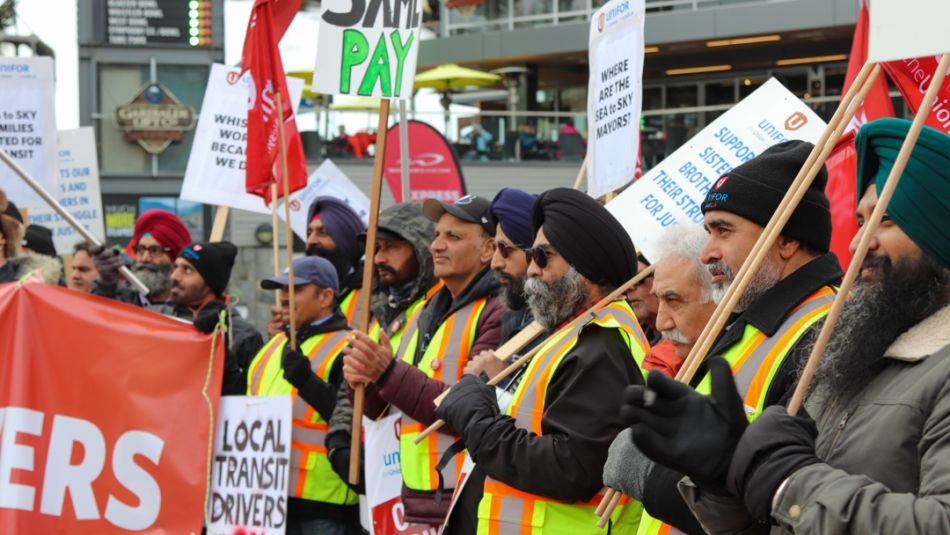
Share
The transit workers’ strike in the Sea to Sky corridor is well into its sixth week.
Yet, Translink managed to sign a contract extension earlier this week with transit operators and maintenance staff in Vancouver. Both groups of workers are represented by the same union, Unifor.
Translink and Unifor reached this agreement, including generous wage increase for a far larger workforce, without a strike vote, without a picket line, and no service interruptions whatsoever.
So, what’s stopping the province, B.C. Transit, our municipal councils or the third-party contractor who runs the service from resolving in the dispute in the Sea to Sky region?
The message from management to transit operators is clear: the work we do in Squamish, Whistler, and Pemberton isn’t worth it.
This message is particularly disheartening given the growing wage gap between our transit workers and Vancouver’s. Bus drivers’ wages in our region are several dollars per hour lower than in Vancouver and more for certified trades positions.
Maybe this disparity would be acceptable in more affordable communities, but Squamish and Whistler have among the steepest housing costs in Canada.
The situation in our region is made worse by the fact that many transit operators are forced to pay out of pocket for health benefits. A key demand in our strike is to extend health and dental benefits to every transit worker in the workplace.
We’re also trying to close the gap in our retirement security. Transit workers in Metro Vancouver have a defined benefit pension plan so that, after decades of public service, they can retire with dignity and some degree of financial security.
The union’s position in this dispute is a reasonable one. Our proposals for a defined contribution pension, improved wages, and benefits for all, are modest and in line with other regions in British Columbia.
Despite our measured approach, management’s public communications about the strike have ranged from misleading to insulting.
Management has exaggerated the differences between transit jobs in Squamish or Whistler versus Vancouver to try and justify the wage gap.
For example, they have pointed to more frequent assaults in Vancouver’s transit system. This is certainly the case but only tells half the story. Violence is a serious issue for transit workers, but ready access to police and security personnel in cities is more abundant than in our region.
Management has also misled the public by claiming to have met the union’s request for benefits coverage for all. But in reality, the company’s proposal comes at a price. Their offer to extend benefits coverage to include all drivers is structured so workers will fund it with a new 15% co-pay. Clawing back benefits for the majority of transit workers is no a way to resolve this dispute.
The recent deal reached in Vancouver clearly shows us that there’s a path to reaching a fair settlement sooner than later. The sooner we get there, the better for Sea to Sky transit riders.


